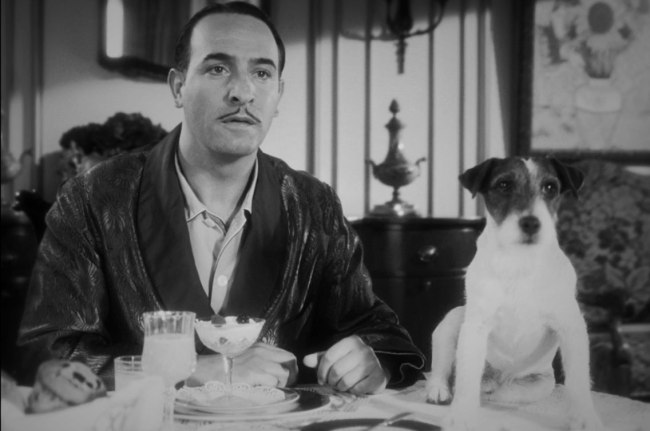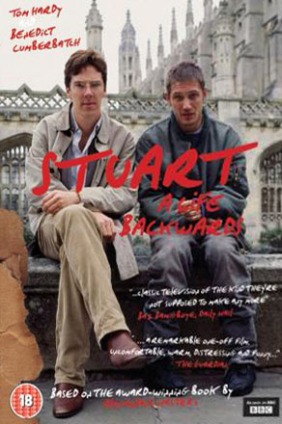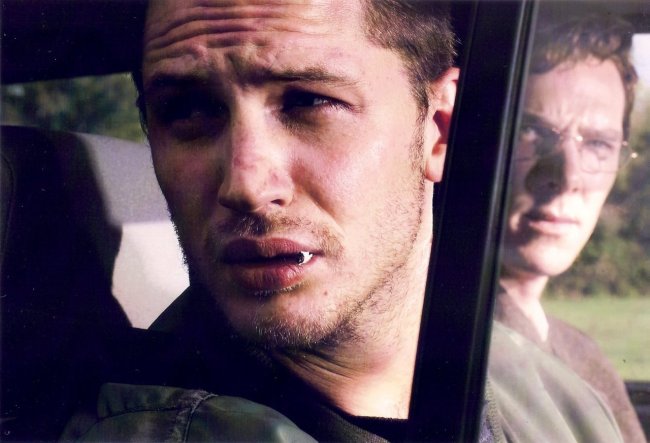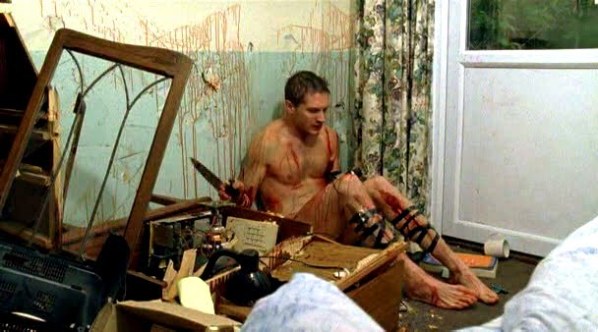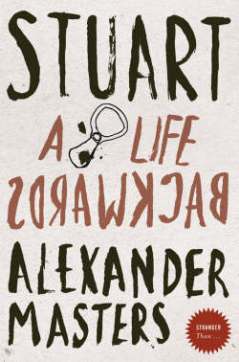Here are my reviews for The Other Woman and Bad Neighbours that I have written for BR3AKTHRU Magazine. My exclusive review for Made in America will be up sometime next week.
review
The Artist (2011) – Review
The Artist is the second silent film I have ever since my short life started 5662 days ago. The first one was The Battle of the Somme, featuring actual (and staged) footage of the action on the Western Front. Unlike the film I lost my silent film virginity to, The Artist is a fictional piece of cinema.
Ironically and amusingly the film is about the silent movie star, George Valentin (Jean Dujardin), becoming accustomed to a world of cinematic sound in Hollywood, and how he reacts to the deterioration of both his marriage and his livelihood. He also becomes quite in love with a beautiful young dancer, Peppy Miller (Bérénice Bejo), who with the collapse of silent films, becomes universally loved as a sound-enriched Hollywood superstar.
The quirkiness of the film is very flattering of Hollywood’s origins, seeming to be such a happy place to be a part of. With all the success, the booming economy, the opportunities, the love: the characterisation of the American Dream is artistically stunning. With joyous bounding from scene to scene, both Valentin and Miller becoming major parts of each other’s lives as their true affection greatly begins to show.
But alas! The introduction of sound to movies is catastrophic for Valentin. He refuses to speak a word of voice into the booming culture of the movie industry, and as the studio that he has brought fame to for years begins to wipe out the existence of silent movies, Valentin’s life begins to take a downward spiral because he refuses to speak. His wife asks him ‘Why don’t you speak George?’ as their marriage also begins to crash, until she can’t take any more of his silence (hilariously ironic in such a film as this) and ends up leaving him.
He loses everything apart from his dog. And he even almost loses himself with a suicide attempt, foiled by his loyal, talented, four-legged friend. This truly is a heartbreaking moment in the film, as many men can relate with the stereotype of a man’s pride being so controlling to progression excellently performed by Dujardin. Valentin just can’t leave behind his vow of silence, and Miller (who has subsequently been made famous by the boom of oral popularity, yet always kept a close eye on her real love of Valentin, dismissing all other men as ‘toys’) decides to look after him as an attempt to do her best to stop him from dangerously hitting rock bottom again.
An hilarious scene of a climatic nightmare Valentin suffers involving the introduction of sound is brilliant. Although we don’t hear words, the onomatopoeic nature of the sounds taking place here is very, very funny yet also made terrifying by Michel Hazanavicius‘ genius skill at filmmaking. The black and white view of the film is absolutely gorgeous throughout, and shows Bejo’s natural beauty as Peppy Miller and Dujardin’s charm as George Valentin.
the anguish of love
My heart ached so much through this film. It is just so, so perfect. I was gripped throughout, and I could not take my eyes off the gorgeous Peppy Miller or just at how cute and talented the dog was. This monochrome beauty is something I find so exciting; something I love using in my own photography, and always enjoy seeing in modern films. The silent aspect of the film is really refreshing too; it was nice to enjoy watching something so different to something I have ever seen before and will certainly be something that I will enjoy watching on numerous occasions into the future.
I know for a fact that many people are put off by films they view to be in black and white, let alone without oral presence (not in the sense of 1972’s Deep Throat starring Linda Lovelace), but The Artist is just so stunning visually, so warmingly sincere and heartfelt, such a genuine modern masterpiece that it would be such a shame for anyone to miss out on its magic because they’re put off by the bloody colour. I mean it won five Oscars for fuck’s sake.
✮✮✮✮✮ – CLASSIC STATUS – Successfully made its way into my heart as one of my favourite films.
Add this to your film bucket list or you’ll spend your entire afterlife in a limbo of eternal regret. And look forward to director Michel Hazanavicius‘ The Search coming out later this year, also featuring the gorgeous Bérénice Bejo.
Stuart: A Life Backwards (2007) – Review
Stuart: A Life Backwards is based on the biography by Alexander Masters of Stuart Shorter – a relatively unknown man who had a horrendous life of homelessness, madness, psychosis, and abuse.
Remember Bane from The Dark Knight Rises? Remember how bulked and massive he was? Well the Bane you know, fear (and perhaps idolise) is the skinny stick of Stuart Shorter who suffers with muscular dystrophy is this film. Tom Hardy is a bloody versatile actor. Hardy puts everything into the character of Stuart that I imagined him to be throughout reading the book. Funnily enough, Master’s flat looked just how I imagined in the book as well. Good screen adaptation there, Mr Attwood. Stuart was a man haunted by his inner bestial violence, yet ever so gentle in touch. A man who believes in politeness and good manners, yet who says ‘fucking’ to an MP in a meeting. Stuart’s dysmorphic walk is entirely believable, along with his slurred words as an incredible sense of déjà vu overcomes you with recollection of the many homeless you’ve scoffed at in disgust whenever you’ve walked through town.
Alexander Masters, played by Benedict Cumberbatch (the real Alexander wrote the screenplay), opens your eyes to truly see who the homeless really are: generally drunk, hopeless junkies. Maybe not so much of a surprise, but that’s exactly the point. People don’t realise that they’re people. They’re people with problems, people who are haunted, people who are scared, people plagued by boredom, people who have lives so dark and bleak that suicide appears to be their best option. These are people that would stay on the streets through the winter and end up dying because they refuse to give up their animal companion whose ‘fault’ it is when refused entry to a hostel.
As always, Cumberbatch’s performance is brutally honest. Originally scoffing at and disgusted by Stuart’s slurred arguments and ideas for how to move on with a campaign they are both working for, he behaves as the majority of us would, which makes it easier to relate to him and Stuart. Their relationship develops as Masters decides to write a biography about Stuart, not only to make his own name in the world of literary appraisal, but to make Stuart’s too. A true friendship blossoms between the two men, with Stuart stating ‘You’re alright, Alexander.’ while sipping on a beer can on the side of the street as his new friend and biographer makes his way to the bus home.
There are some truly funny moments too; after making convict curry for Alexander and himself, Stuart walks into the lounge with his eyes fixated on the telly. Without even glancing at Alexander he passes him his plate, and then removes one of the forks dangling from his mouth and passes it to Masters. Patently disgusted, Masters wipes the fork numerous times before using it to shovel the orange splodge of the curry into his own mouth. This did break a smile across my stern, hardened face. True friendship, eh.
As with the book, this film is heartbreaking. Managing to get the right amount of humour into such a tragic story is vital, and the book and film pass this exam with flying colours. With Stuart’s uncontrollable ‘black mist’, bad things follow. BAD things follow. The film portrays these brutally, but also delicately, sticking very closely to the book by showing some of the horrific moments of Stuart’s past, whilst also maintaining the audience’s love and respect for the character.
One of Stuart’s black mists
To be honest, I was close to tears by the end of this film, which shows how good Hardy’s and Cumberbatch’s perfomances really were. Being a TV movie, I did not have high expectations for this film, but I was truly blown away. Not bored once throughout, I was totally engrossed from start to finish; it may have helped that I had read the book first, but I don’t think it will matter if you haven’t as the performances are really that good. Coming before either of the actors really made it big, Stuart: A Life Backwards is really worth a watch for any Tom Hardy or Benedict Cumberbatch fan.
✮✮✮✮✮ – CLASSIC STATUS
I’ll be keeping an eye out for director David Attwood‘s prior works to Stuart in the future: very impressed. I’m sure Stuart would be proud.
Stuart: A Life Backwards – Alexander Masters review on Goodreads
Here is my review for Stuart: A Life Backwards by Alexander Masters on Goodreads:
Stuart Shorter was an ex-junkie, (ex-)psychopath, ex-homeless, and relatively unknown in the grand scheme of things. Yet Alexander Masters was still entirely correct in thinking that Stuart’s story was a story worth telling. With the bizarre structure of starting the book at the end of the story, which isn’t actually as confusing as it sounds, the reader is sent on a journey through the life of a chaotic in the heart of Cambridge, England. For so many horrific things that have taken place at Stuart’s fault in his tragically short life, this nightmare of a man really does begin to grow on you. Masters has truly mastered the art of emphasising the tragedy of one’s past at the same time as filling the pages with his own realistic, yet humourous reactions to Stuart’s difficult behaviour.
One thing didn’t work for me, however. Near the end of the book we get to Stuart’s early years with a chapter titled ‘The Forgotten Years: Aged 0-10’ which made no sense to me. The irony of the chapter’s title is very apparent because it seems as if they really are forgotten. Masters visits Stuart’s grandmother to try and find out about the beginning of his life, but we don’t actually find out anything near the sort. It’s not even made clear if those years really are forgotten by the last few who had a chance of remembering them, or if Master’s made a mistake. Intentional irony or not, I didn’t like that.
Stuart: A Life Backwards is a truly brilliant debut from Alexander Masters. With heartfelt sorrow and ironic humour plastered throughout, this book really was an enjoyable read, despite the confusion around ‘The Forgotten Years’.
Stuart Shorter
The Good Soldier – Ford Madox Ford review on Goodreads
Here is my review for The Good Soldier by Ford Madox Ford on Goodreads:
The Good Soldier is an intense tale of the complexity of post-Victorian emotional repression. With a collection of entirely despicable characters, it is somewhat refreshing to know that we live in a society that is somewhat openly over-sexualised, instead of in the hellhole of despair that existed in the early 1900s that was under-sexualised, and therefore even more liable to befall upon adultery and deceit in an explosion of desperation for passionate exposure. Ford Madox Ford certainly has a way with words; his beautiful choice of linguistic devices and upper class vernacular exposes the reality behind this harrowing ‘inspired-by-true-events’ account. The problems with it are that sometimes the novel is simply too complex. Although the narrator does recognise this, and he perfectly justifies his reasoning for the use of this peculiar technique of story telling; the events seem to ‘to-and-fro’ between dates and characters, which sometimes begin to twist the story down a path of amnesiac nonsense. With one sentence being set in a certain time, and another being set in an event that took place a few years before, this twisting path of confusion dwells more in a forest of misunderstood mist than in an open field of appreciated clarity. Nevertheless, The Good Soldier is a beautifully written novel (one feels most elegant to read it), and where it falls on, perhaps, context, it rises and succeeds with its literacy.
You can view all my reviews on Goodreads by clicking here, or by adding me on the book social networking site.
The Amazing Spider-Man 2 – Review
My return to the cinema after four months of neglect has been most highly anticipated. I am a huge Spider-Man fan (I own a mug), so I thought The Amazing Spider-Man 2 would be a good film to start with.
Despite getting mixed reviews, I did enjoy the first one. Compared to Raimi’s Spider-Man Trilogy starring Tobey Maguire and James Franco, The Amazing Spider-Man films seem to stick to the original stories in the comics with much more loyalty. Which I, being the comic book geek I am, very much prefer and admire. Especially as the stories in the comics are generally brilliant, intelligent, interesting, and genuinely would make good film adaptations.
The first think that struck me with the new film is that we saw much more of Spider-Man’s normal life. This hadn’t really been done before in previous films, as the only bad guys you really saw the friendly neighbourhood hero fight are normally the big bad guys, such as The Lizard. I really liked seeing Spidey’s regular routine being placed into the movie; it was much easier to relate to the character of Peter Parker, and bring his personality far closer to our reality. The on-body shots were frankly stunning, and very enjoyable visually. The cinematography of the film was very impressive, with CGI appearing realistic and not at all cheap.
Parker’s home life was approached with emotional and humourous chemistry, which I enjoyed, albeit the screening I went to did not hear as many laughs at some of these points as I would have expected. Only the echo of my own. The relationship between Parker and Gwen Stacy was approached with beautiful delicacy, which seemed both realistic and sincere. A few heart strings were definitely pulled in their scenes together.
The villains were pretty badass. Jamie Foxx as Electro was pretty cool, both visually and aurally, although at times his persona of Max Dillon did seem a bit too hopeless, which was at times annoying. Maybe that’s just me being picky, but Dane DeHaan as Harry Osborn and Paul Giamatti in his brief cameo of The Rhino seemed far more solid as supervillains, despite the fact that Giamatti had at the beginning of the film a slightly ridiculous evil laugh that I picked up on. The film ended by setting up nicely for the Sinister Six spinoff film that Sony have recently announced, as well as The Amazing Spider-Man 3 that will be released sometime in spring 2016.
Director Marc Webb should be proud of what he has produced with both films in the series.
✮✮✮✮ for The Amazing Spider-Man 2 – A fun, anticipated, and greatly successful Spider-Man sequel. Perhaps even favourable to the first one in the series, if not for being a little long. Jam-packed with clever wit, sinister villains, and spandex suits, and featuring solid performances from the likes of Dane DeHaan, Andrew Garfield, and Emma Stone, The Amazing Spider-Man 2 is definitely worth a trip to the cinema for Spidey, comic book, Marvel fans, and even regular citizens, alike.

Doctor Sleep – Stephen King review on Goodreads
Here is my review for Doctor Sleep by Stephen King on Goodreads:
I couldn’t put this book down; Doctor Sleep is an excellent sequel to the Shining, as well as being a perfectly good book in its own right (something pretty unheard of recently). King is one of my favourite authors and I had been looking forward to reading the novel for a very long time. I was certainly not disappointed. The master of written suspense has certainly not lost his title, or his ranking on my list of favourite authors. In fact this book is so good that I may even prefer it to the The Shining (my favourite book, after my all-time-favourite The Knife of Never Letting Go and its sequels by Patrick Ness). Now this could be because I really enjoyed seeing the character of Danny Torrance grown up, or it could be because it is set in the modern age that I am so familiar with living in myself, unlike the original, therefore the literature could consume me more. But in all truth, I highly doubt that possibility as it’s never been a problem with such masterpieces as The Jungle Book, Dracula, or Olalla. The novel succeeded in making my spine tingle, as well as making me cry at some point too. Which I did NOT expect from a Stephen King novel. I knew hew was capable of provoking powerful emotions, but seriously? Crying? A fantastic read, King fans will not be disappointed.
The Fault in Our Stars – John Green review on Goodreads
Check out my review for The Fault in Our Stars by John Green on Goodreads:
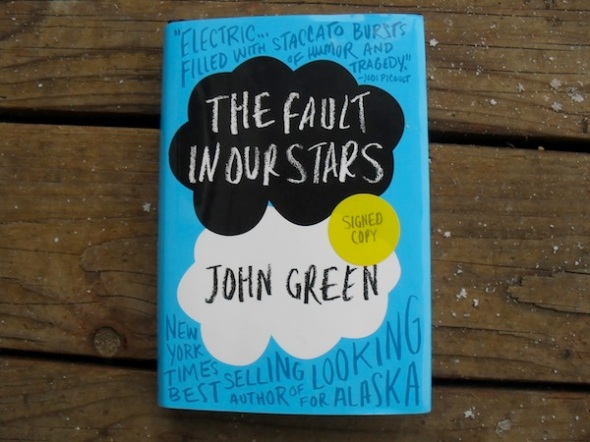
The Fault in Our Stars is incredibly powerful; through its dry wit, sarcastic soliloquies and heartbreaking honesty the reader is sent through a roller coaster ride of emotions. I finished this book in less than a day of reading because it hooked me from its start. It’s one of those books that, despite being written with the target audience of young adults, is easily suitable for adults, alike. The chapters flow into each other with perfected precision, and imagery, when used, has a real effect in placing yourself within the story. John Green has certainly created a novel that will be much-loved for years too come for (once again) teenagers and adults, alike. I look forward to the film coming out this summer.
Actors Anonymous – James Franco review on Goodreads
Check out my review for Actors Anonymous by James Franco on Goodreads: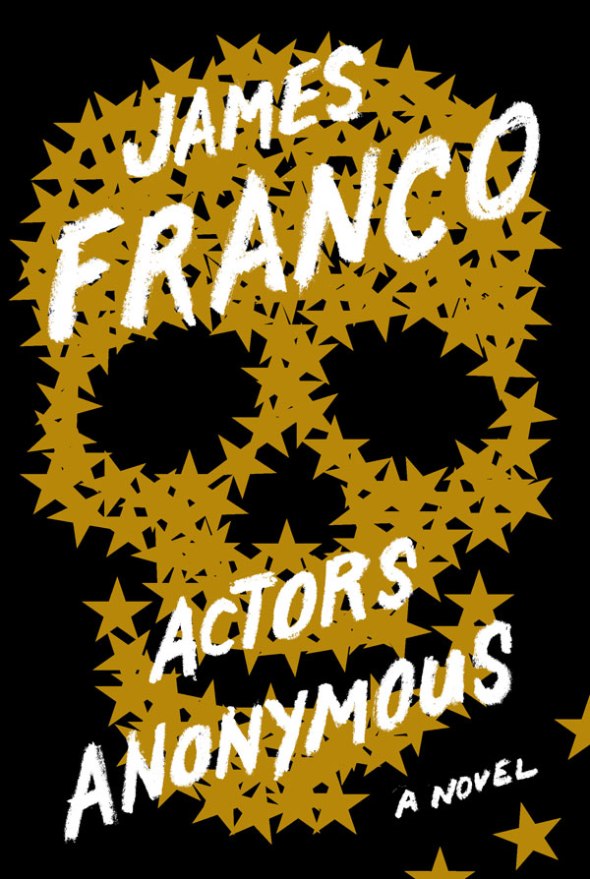
Conversely to most of these reviews, I actually enjoyed this book and it certainly is not thematic garbage. Although it isn’t perfect (a couple of the chapters really did annoy me, and a few others greatly confused me); I could really feel the passion that Franco put into the honesty of his characters, and it showed in the final product. I don’t know why he’s called it a novel, because it’s not. But this is a good and recommendable artistic piece of fiction about actors, ‘The Actor’, and general Hollywood and show business’ ethos and attitudes. Plus, some of it is just so damn quotable. It’s refreshingly different from almost all modern fiction released now, which is nice to see that someone is taking a bold step into the unknown: he’s definitely the right person for the job.
The Woodsman – Review
When watching Nicole Kassell’s The Woodsman, the amount of care you begin to feel for such an enemy of our modernist society is incredibly striking.
The film stars Kevin Bacon as convicted child molester, Walter, who has just served twelve years in prison and is attempting to return to ‘normality’. But as Walter so painfully expresses to his therapist, played by Michael Shannon, “what is normal” for a paedophile?
The thing that hit me the most about this film, is the pain Walter feels throughout his ordeal. Walter never raped or ‘hurt’ any of his victims (note the irony), but was still subject to the same prejudice as any other convicted ‘dirtbag’. Now is this morally right? Probably. I am in no way condoning such actions; one of the most powerful effects of The Woodsman is its portrayal of Walter’s anguished struggle with his illness. He absolutely despises the fact that he has such thoughts about girls so young, and the film is an hour and twenty-five minutes of an entirely haunting spiral of a man’s self-loathing. The film is shot beautifully, capturing Bacon‘s hellish performance of such a despicable, yet tortured character. This portrayal is so sincere that it is the first time I have seen paedophilia as an illness, and not just a sadistic/psychopathic fantasy. I know see that the molested aren’t the only victims to paedophilia, which makes the whole concept even more disturbing.
✮✮✮✮✮ for The Woodsman – A haunting portrayal of a man’s self-loathing, with brutally honest snapshots of a minority of humanity’s indisposed sickness.



